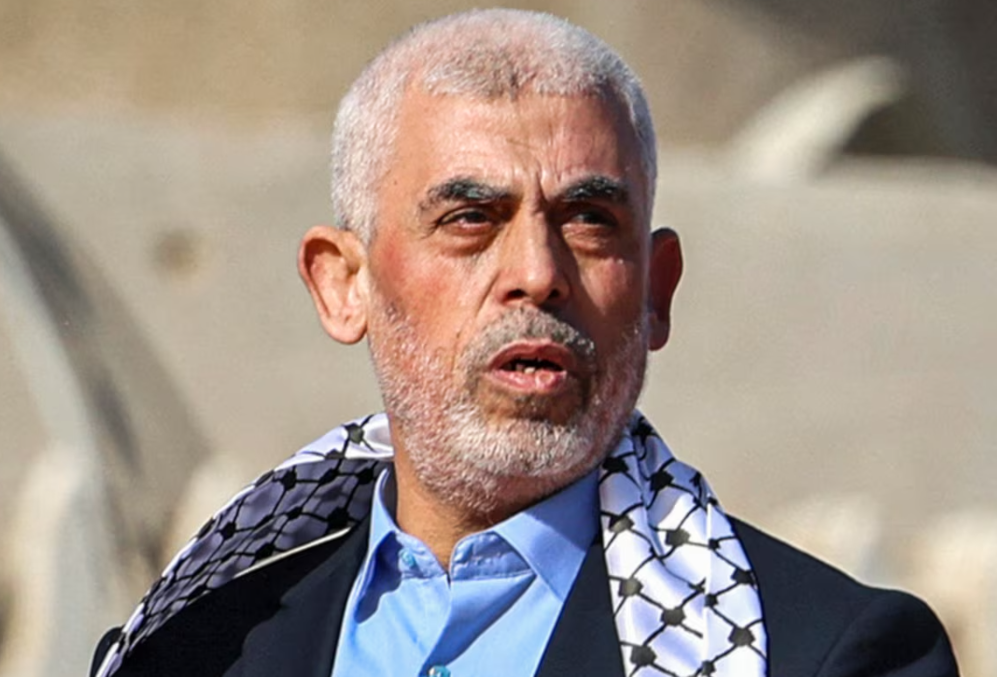Sinwar may be dead but Hamas lives on: Foreign Policy
Steven A. Cook writes in Foreign Policy that attempting to eradicate a resistance movement through violence often backfires; the committed do not retreat—they intensify their resolve.
-

Martyr Yahya Sinwar appears before supporters in 2022 during a rally marking the 35th anniversary of Hamas' foundation in Gaza City. (Undated, AFP)
According to Steven A. Cook, it has become a cliché to assert that "you cannot kill an idea."
Cook writes in Foreign Policy that although Palestinian martyr Yahya Sinwar was the mastermind of Operation al-Aqsa Flood and "Israel" believes it achieved a great deal by murdering him,
He recounts the many various leaders of different resistance movements in Lebanon and Palestine and how their assassinations helped build the "mythology of Israel’s security services." Despite this, Cook asserts that "Israel" still has not managed to defeat armed resistance factions.
He details how Sayyed Hassan Nasrallah made Hezbollah one of the greatest resistance movements in the region after the death of Sayyed Abbas al-Mousawi in 1992 and how subsequently, following the martyrdom of Sayyed Nasrallah and significant leaders within Hezbollah, it has still launched an unprecedented barrage of rockets at "Israel".
Sheikh Ahmad Yassin, the early leader of Hamas, similar to Sayyed Nasrallah, was also martyred in an airstrike. Cook notes that if his violent death didn't lead his successors to rethink their approach. Why would Sinwar's killing have any different result?
Although some believe Sinwar's death could weaken Hamas, Cook emphasizes that resistance is a "critical component of identity," detailing how Sinwar preferred to meet his end from an Israeli tank shell rather than a natural cause, believing that his martyrdom would serve as motivation for further resistance.
"That Israel killed Sinwar seems like a major achievement today, but in time, others will rise—as they always have—to continue to resist," he concludes.
'Israel's' killing of Yahya Sinwar is no turning point: FP
According to Daniel Byman, a professor at Georgetown University’s School of Foreign Service, the killing of Yahya Sinwar, the recently elected head of Hamas' political bureau, may turn out to be less impactful than anticipated in the current war on Gaza.
While Sinwar's death only means one less leader in the Palestinian Resistance, Hamas is far from rescinded as "Israel" faces the more complex challenge of the day after in Gaza.
Byman writes in Foreign Policy that despite Hamas suffering the loss of many of its leaders like Ismail Haniyeh and [allegedly] Mohammed Deif, the Resistance will still have new less-experienced members ready to take over.
Sinwar's death might increase the likelihood of a ceasefire, Byman argues, since he was more aggressive toward "Israel" and his strategy was to allow the occupation to continuously harm its worldwide reputation and its relationship with the US.
According to Byman, the savage Israeli assault on Gaza is a cautionary tale for future leaders in the resistance about the dangers of confronting a ruthless adversary, noting that Hamas may find it advantageous to regroup and rebuild, despite the occupation claiming it killed a third of its fighters as it killed 42,000 Palestinians.
On the other hand, new leaders may also choose to intensify their resistance efforts. Under Sinwar, Hamas significantly harmed "Israel," revitalized the Palestinian cause, and tarnished "Israel’s" global image.
Following the loss of numerous leaders, fighters, and countless Palestinian lives, there is also a strong desire for revenge among the Resistance and its members.

 3 Min Read
3 Min Read








